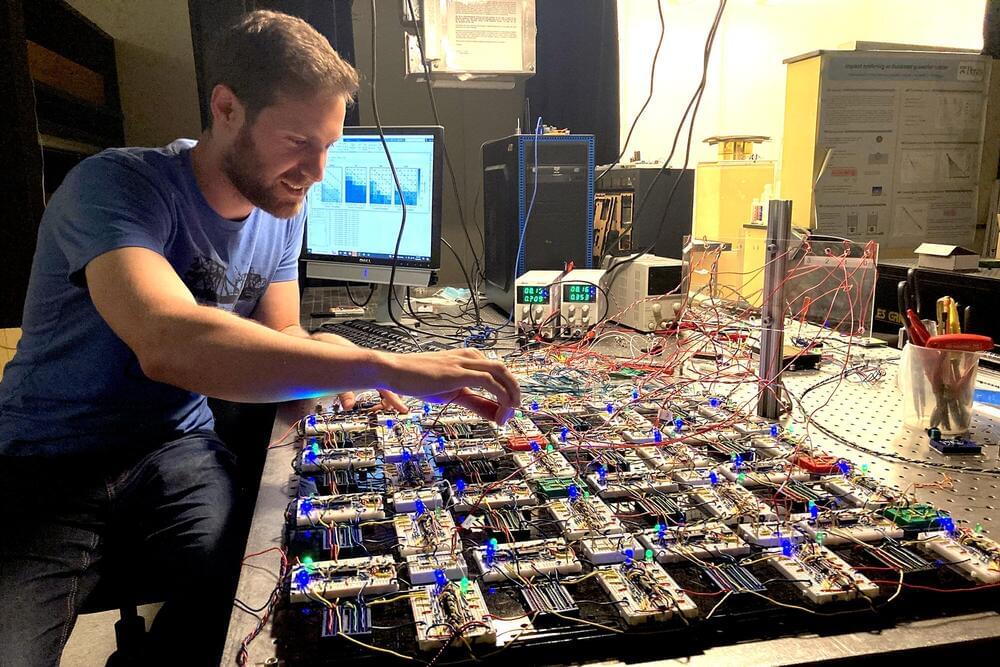Scientists run into a lot of tradeoffs trying to build and scale up brain-like systems that can perform machine learning. For instance, artificial neural networks are capable of learning complex language and vision tasks, but the process of training computers to perform these tasks is slow and requires a lot of power.
Training machines to learn digitally but perform tasks in analog—meaning the input varies with a physical quantity, such as voltage—can reduce time and power, but small errors can rapidly compound.
An electrical network that physics and engineering researchers from the University of Pennsylvania previously designed is more scalable because errors don’t compound in the same way as the size of the system grows, but it is severely limited as it can only learn linear tasks, ones with a simple relationship between the input and output.
